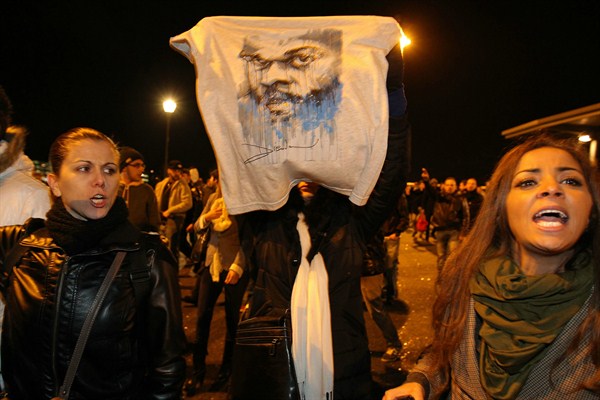PARIS—The recent attacks against synagogues and Jewish-owned businesses on the margins of pro-Palestinian demonstrations in France have shocked many, both here in France and beyond, despite being only the latest in a string of anti-Semitic incidents and violence in the country over the past few years. Nevertheless, the most recent attacks have been in some ways sensationalized and distorted, especially in the American press. While alarming, they do not represent a generalized sentiment of anti-Semitism in France; they have been rightfully condemned across the French political spectrum and by many in the communities in which they took place.
More important, to focus only on the anti-Semitic nature of the violence is to make the mistake of paying attention only to the tip of the iceberg, while missing what lies beneath the surface. Two things in particular bear attention here.
First, those responsible for the recent attacks are anti-Semites, but they are not only anti-Semites. The current violence took place in the immediate context of the protests against the Israel-Hamas war in Gaza. But the broader context is that of the radicalization of a very small minority of French youths, primarily but not exclusively Arab and primarily but not exclusively of Muslim background. (There are cases of non-Arab converts to this radicalized form of Islam.) Recruited in online forums and social media, but also by radical Muslim itinerant preachers from North Africa and the Middle East, they are fed a typical diet of extremist Islamic propaganda that includes, but is not limited to, anti-Semitic tropes. France and the West in general are also central characters in the lineup of villains to be demonized. It bears mentioning that before targeting a Jewish school in Toulouse, Mohammed Merah had already killed three French soldiers in that city, one of them a fellow Muslim and all three of North African descent. There are currently an estimated 300-700 French citizens fighting among the radical Islamist rebel groups in Syria, a major concern for French intelligence and security services.

